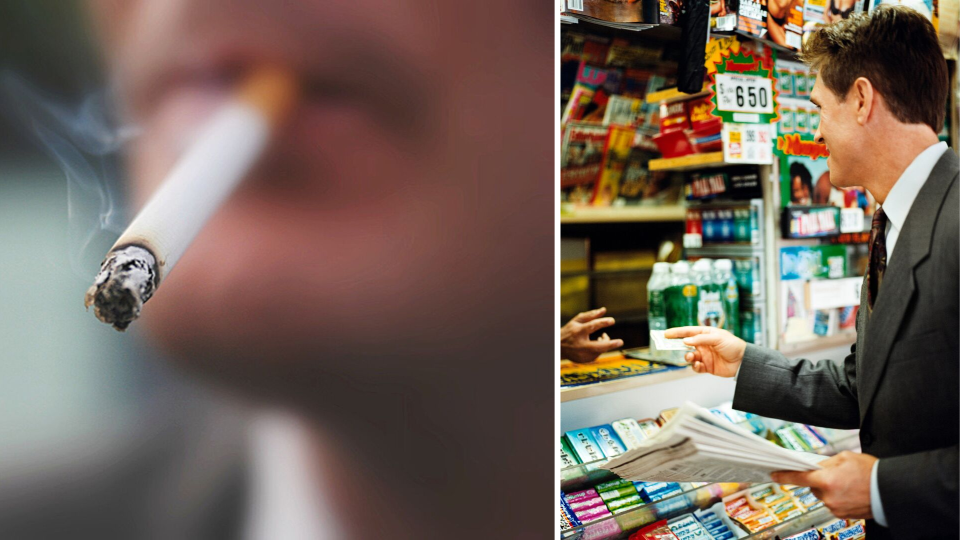Cancer Council pushes to stop thousands of businesses selling tobacco

Around 10,000 businesses would be required to purchase a tobacco licence in order to continue selling the controversial product, under a new proposed plan to stop smoking-related cancer deaths.
Smoking causes an estimated 20 per cent of Australia’s cancer burden every year, with more than one-in-10 Australians smoking daily.
Related story: $100 cigarettes, $81 beer: How much everyday items will cost in 2030
Related story: Trump administration considers flavoured e-cig ban
And according to research led by the Cancer Council, these statistics aren’t helped by the volume of stores in New South Wales that currently sell tobacco. The research and funding organisation has released research this week finding that a tobacco licence could reduce the number of stores selling cigarettes and other tobacco products.
“Tobacco is among the most widely available consumer goods in Australia, and this wide distribution increases consumption, maintains smoking and undermines smokers’ quit attempts,” said Cancer Council NSW’s tobacco control senior project officer, and lead author of the research, Christina Watts.
“This research shows that a fee-based tobacco licence can contribute to a reduction in the availability of tobacco.”
The research, from Western Sydney University, The University of Sydney and Cancer Council, studied former tobacco retailers’ reasons for deciding to pull the product from shelves. It found that in states like Western Australia, where businesses are required to pay an annual licence fee, the need to acquire a license was enough to stop some retailers from selling the product.
But only WA, Tasmania, the Northern Territory, the Australian Capital Territory and South Australia have this requirement.
The researchers argued that outside of these states, retailers are not incentivised to stop selling tobacco.
“Licensing of tobacco retailers, with an annual licence fee, has been repeatedly recommended as a critically-needed policy in NSW. Licensing can be used to restrict the number of retailers within areas, limit the types of outlets that can sell tobacco and/or deter retailers from selling or continuing to sell,” Watts said.
“To date, a strategy to reduce the widespread availability of tobacco has not been comprehensively explored, despite the NSW Government pledging to restrict the availability and supply of tobacco in their 2012-2022 tobacco strategy.”
The Cancer Council is now calling on the NSW state government to force retailers to pay an annual tobacco licence fee.
What do retailers think?
According to the research, 45 per cent of NSW tobacco retailers would support the introduction of the fee if revenue went towards funding education of smoking laws and enforcement.
In SA, businesses pay an annual fee of $297, while in the ACT, it costs $540 to renew a licence. Retailers in WA pay $286.
“Smoking still places a huge burden on the community and on people’s lives,” Watts said.
“If the NSW Government are to achieve the goal of restricting the availability and supply of tobacco, as outlined in their tobacco strategy, the introduction of an annual licence fee for retailers is a common-sense next step,” she concluded.
The future of work will be discussed at the Yahoo Finance All Markets Summit on the 26th of September 2019 in the Shangri-La, Sydney. Check out the full line-up of speakers and agenda for this groundbreaking event here and buy tickets here.

 Yahoo Finance
Yahoo Finance 

